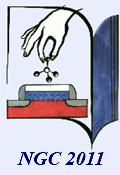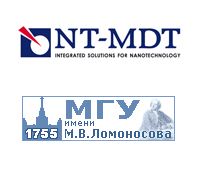
Nano and Giga Challenges
in Electronics, Photonics and Renewable Energy
Symposium and Summer School (Tutorial Lectures)
Moscow - Zelenograd, Russia, September 12-16, 2011


|
Nano and Giga Challenges in Electronics, Photonics and Renewable Energy Symposium and Summer School (Tutorial Lectures) Moscow - Zelenograd, Russia, September 12-16, 2011 |  |
Commentary Dominic Gervasio
Research on electrochemistry is central to the development of advanced power sources for the new energy economy. Much of the work in my lab centers on novel ion-conductors and how these affect the transformations between electrical and chemical processes that new power sources like high temperature polymer electrolyte membrane (HT PEM) fuel cells and high energy density capacitors as well as the electroplating of “active metals” like aluminum and silicon, the later being critical for the development of low-cost photovoltaics The electrolyte work has led to modified catalytic interfaces that allow remarkable things. Not the least is that we have achieved practically reversible electroreduction of oxygen, which is important for the ultra-high conversion efficiencies which have been a promise of fuel cell engines for a long time. Sluggish oxygen electroreduction kinetics has been the limiting factor preventing the promise of high efficiency only possible with fuel cell engines and the power density needed to make fuel cells practical. This kind of result is a consequence of having a highly conductive electrolyte with low water activity, which is possible in long-overlooked salt electrolytes which give excellent prospects for future research I look forward to this trip, because of the rich tradition of physical electrochemistry in Russia. While many scientists worldwide were applying electrochemistry mainly as a form of analytical chemistry, the Russian electrochemists and their students - Levich, Bogotsky, Vasiliev to name a few - were establishing the mechanistic surface-science relationships that have made electrochemistry a viable approach for meeting the needs of the next-generation energy economy. It had been my good fortune to meet many wonderful Russian electrochemists when I they visited with Prof. Ernest Yeager at Case Western Reserve University. While in Moscow I hope to see first-hand the places where physical electrochemistry advanced, and I look forward to forming new ties with new Russian electrochemists with this rich scientific tradition. |
Empowered by Nano & Giga Solutions and NT-MDT
© 2010